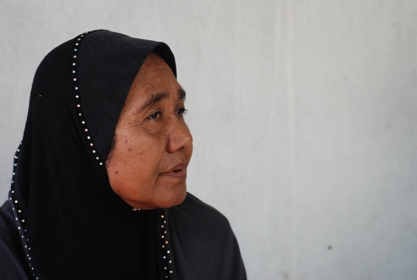Ten years on, justice remains elusive for victims of Tak Bai tragedy
This year’s October 25 marks the 10th anniversary of the Tak Bai massacre -

a dark spot in the history of the Thai military when 78 Malay Muslims died of suffocation as they were hand-tied and stacked in layers like sardines on trucks which took them from Tak Bai district police station in Narathiwat to Ingkayuth camp in Pattani’s Nong Chik district about 200 kilometres away. Seven others were shot dead on the same day in front of the police station.
Many people outside the restive Far South may have completely forgotten this tragic event. But for the survivors of this traumatic incident as well as families of the dead victims and the injured, the incident seems to remain fresh in their memories although most of them are reluctant to talk about it.
38-year old Sanusee Jehmae, a resident of Ban Sala Mai, Tak Bai district, is one of the survivors that Isra news agency managed to talk with. He is friendly and looks quite normal except for his right hand which became paralysed from the elbow down to the fingertips.
Sanusee said that his crippled hand was the result from the lack of blood circulation in the hand as he was forced to lie down on the floor of a military truck with many other people being stacked above him during the painful journey to the Ingkayuth camp.
He recalled the incident saying that he thought he would not survive as he could barely breathe because of the weight of the people stacked above him. Upon arrival at the camp several hours afterward, he said felt numbness in his hands and legs and could not walk straight.
After two days of detention in the camp, he was released and taken to Pattani hospital by his family for treatment of the right hand which became paralysed and it remains so until today. Since then, he has learned to make more use of the other hand.

Sanusee and his friend who was involved in the tragic incident have fought for justice and attended court hearings every week to keep abreast with the progress about the Tak Bai case. Finally, the Yingluck government with the recommendation of Pol Col Thavee Sodsong, then the secretary-general of the Southern Border Provinces Administration Centre, agreed to pay compensation to the injured and to families of those killed by security forces.
Altogether 700 million baht in compensation, including 42 million baht paid in 2007 by the military, have been paid.
Today, Sanusee lives in the same house with his parents and a sister. He works as a delivery man at a construction materials dealer’s shop.
He said that officials often remind him not to revive the incident. He added that he didn’t want to talk about it anyway because he thought as long as the authorities do not admit their guilt there is still no justice for him and the other victims.
Not far away from Sanusee’s house is Mrs Kamoh’s house. She also lost a son in the Tak Bai incident. She also lost her husband and two other sons from illnesses leaving her the youngest son, 19, who has been working in Malaysia who comes home once a while. Luckily, she has a niece who lives with her otherwise she will have to live alone.
Mrs Kamoh said she used a portion of the compensation paid by the government to buy a rubber plantation and kept the other in her bank account. Despite the compensation, she said she felt she was not given justice.
In fact, former prime minister Surayud Chulanont publicly apologized on behalf of the government for the tragedy.

Mrs Angkana Nilapaichit, president of the Justice for Peace Foundation pointed out that one of thethe root causes of the violence in the Deep South is injustice and discrimination against the local Malay Muslims by the authorities.
As far as the Tak Bai case is concerned, she said that many witnesses told how the arrested suspects were piled up on trucks in layers and some of them were struck with rifle butts when they cried for help. However, the public prosecutors decided not to proceed with the case to the court against some military officers who mistreated the arrested suspects while they were trucked from the protest site in Tak Bai to the Ingkayuth camp in Pattani.
Mrs Angkana said that many doubters, herself included, wondered why the prosecutors claimed that they didn’t have to the evidences to take the case to the court despite the fact that there are thousands of witnesses, including the victims themselves.
When the prosecutors decided not to proceed with the case to the court, the victims dared not take the case to the court themselves for fear of their own safety, said Mrs Angkana, adding that some victims later asked the National Human Rights Commission to sue the authorities concerned on their behalf and this was not possible without witnesses to come forward willingly to testify.
In comparison with the Department of Special Investigation’s case against former prime minister Abhisit Vejjajiva and former deputy prime minister Suthep Thuagsuban regarding the crackdown on red-shirt protesters in 2010, Mrs Angkana said that the Tak Bai case is less complicated with many people having witnessed the mistreatment of the arrested protesters, yet the prosecutors decided not to pursue with the case to the court claiming insufficient evidences.
Personally, she said that the Tak Bai case must be revived as there are many witnesses who are now willing to come forward to testify so that it will be known who will be held accountable for the deaths and injuries.
"This is not a personal issue but one which concerns with justice of the community and society. If justice is accorded, the feeling of the people that they have been denied justice will ease," said Mrs Angkana.
------------------------------------------------------------------------------------------------------------------------------------
Captions :
1 Kamoh
2 Sanusee Jehmae
3 Angkana Nilapaichit
